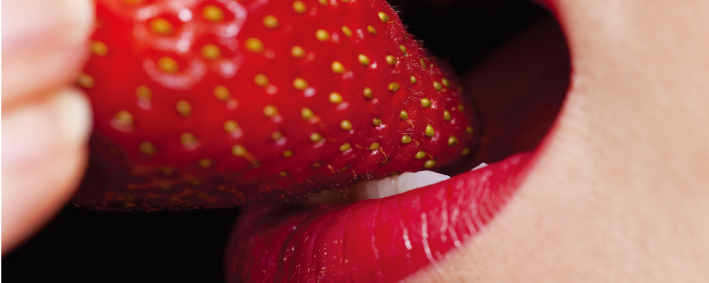 |
CCHU9005 Arts and HumanitiesFood and ValuesThis course is under the thematic cluster(s) of:
|
Course Description
Food is a fundamental aspect of human existence. This course examines philosophical issues about food and its relation to ethics, objectivity, and values. Topics include moral issues such as the debate about animal rights, world hunger, the use of genetic engineering in agriculture, and the justification of health policies about food and drugs. We shall also look at the relationship between food and art, and the objectivity of taste. The main objective of the course is to help students adopt new perspectives in thinking critically about what they might normally take for granted in their daily lives.

Course Learning Outcomes
On completing the course, students will be able to:
- Compare and contrast the various absolutist, relativist and contextualist positions about morality and values.
- Identify the critical factors to consider in moral evaluation and apply interdisciplinary knowledge in analyzing selected ethical problems related to food.
- Critically examine the nature of subjectivity in aesthetic and taste preferences and the possibility of objective evaluative standards in the context of food.
- Apply relevant research information to reflect on projects and activities related to the course and to present findings and ideas effectively.
Offer Semester and Day of Teaching
Second semester (Wed)
Study Load
| Activities | Number of hours |
| Lectures | 24 |
| Tutorials | 8 |
| Reading / Self-study | 40 |
| Assessment: Writing assignments | 50 |
| Assessment: Special project | 30 |
| Total: | 152 |
Assessment: 100% coursework
| Assessment Tasks | Weighting |
| Short writing assignments | 70 |
| Special project | 15 |
| Tutorial participation | 15 |
Required Reading
- Critical Thinker Academy. (2018). How to Build a Compelling MORAL ARGUMENT. From https://tinyurl.com/yhwfq26b [Start from “What is a Moral Argument?” up to “Shared Moral Values Make Moral Argumentation Possible”]
- Ethics – Animal ethics: Eating animals. London: BBC. From http://www.bbc.co.uk/ethics/animals/using/eating_1.shtml
- Excerpt from Mill’s Utilitarianism. From https://cchu9005.wordpress.com/mill/
- Farm Transparency Project. (2018). Dominion. From https://www.dominionmovement.com/watch [A documentary showing what life is really like for most farm animals, using footage from drones and secret cameras]
- Fieser, J. (Ed.). (2008). Webpage of excerpts from articles on drugs from various sources. From http://www.utm.edu/staff/jfieser/class/160/3-drugs.htm (Last update in January 2012)
- Gatew, H., & Mengistu, K. (2019). Genetically modified foods (GMOs); a review of genetic engineering. J. Life Sci. Biomed, 9(6), 157-163.
- Holt-Giménez, E. (2019). Capitalism, food, and social movements: The political economy of food system transformation. Journal of Agriculture, Food Systems, and Community Development, 9(A), 23-35.
- Kaplan, D. M. (Ed.). (2012). The philosophy of food. Berkeley: University of California Press. From http://www.food.unt.edu/philfood [Introduction]
- Lowe, D. (2016). Common Arguments for the Moral Acceptability of Eating Meat: A Discussion for Students. Between the Species, 19(1), 172–192. From https://tinyurl.com/yx5v69ag
- Regan, T. (1986). A case for animal rights. In M.W. Fox & L.D. Mickley (Eds.), Advances in Animal Welfare Science 1986/87. The Humane Society of the United States.
- Singer, P. (1972). Famine, Affluence, and Morality. Philosophy and Public Affairs, 1(3), 229-243.
- Smith, B. C. (2007). Questions of Taste: the philosophy of wine. Oxford University Press. [Chap. 3 “The objectivity of tastes and tasting”]
- Smith, P. (2002). Drugs, Morality and the Law. Journal of Applied Philosophy, 19(3), 233-244.
- Telfer, E. (2002). Food as Art. In A. Neill, & A. Ridley (Eds.), Arguing about Art: Contemporary Philosophical Debates (pp. 9-27). Psychology Press.
- Todd, C. (2011). The Philosophy of Wine: A Case of Truth, Beauty, and Intoxication. McGill-Queen’s University Press.
- Zhang, C., Wohlhueter, R., & Zhang, H. (2016). Genetically modified foods: A critical review of their promise and problems. Food Science and Human Wellness, 5(3), 116-123.
Course Co-ordinator and Teacher(s)
| Course Co-ordinator | Contact |
| Professor J.Y.F. Lau School of Humanities (Philosophy), Faculty of Arts |
Tel: 3917 2796 Email: jyflau@hku.hk |
| Teacher(s) | Contact |
| Professor J.Y.F. Lau School of Humanities (Philosophy), Faculty of Arts |
Tel: 3917 2796 Email: jyflau@hku.hk |

